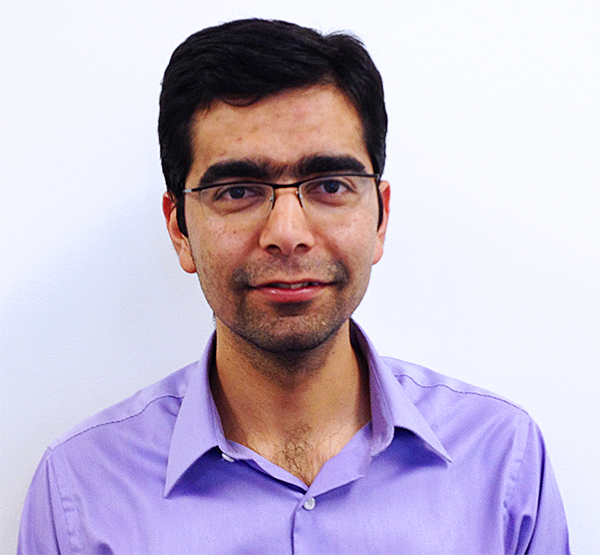 School of Civil and Environmental Engineering first-year PhD student Mohammad (Mehdi) Rashidi has been named a 2014 Sam Nunn Security Program Fellow.
School of Civil and Environmental Engineering first-year PhD student Mohammad (Mehdi) Rashidi has been named a 2014 Sam Nunn Security Program Fellow.
The Sam Nunn Security Program Fellowship prepares a select group of engineers, scientists, computer scientists, and social scientists to bring their backgrounds to bear to develop and implement policy to help solve problems of national and international importance.
The Program is funded by the John D. and Catherine T. MacArthur Foundation, as well as by contributions from the Callahan Memorial Endowment and Georgia Tech, and examines policy issues including arms control, proliferation, counter-terrorism, climate change, resource scarcity, military transformation, infrastructure protection, technological innovation, the role of technology in economic development, and the potential for nefarious use of emerging technologies. Achieving solutions to these problems requires individuals with both technical understanding and insight into the political, economic, and strategic realities of crafting and proposing policy.
Rashidi notes, "As a Sam Nunn fellow, my intent is to study how researchers in the area of infrastructure protection, may inform the policy makers about their research and the process of extending research from academia to policy and construction codes. To this end, not only the technological and economic aspects should be noticed but also responsibilities associated with ensuring the safety and security of the infrastructure should be considered. More information brings more responsibilities for security of the society and may complicate making decision about infrastructure."
Rashidi is co-advised by Associate Chair of Graduate Programs and COE ADVANCE Professor Kimberly E. Kurtis and by Associate Dean for Academic Affairs (College of Engineering) and Professor Laurence J. Jacobs. Rashidi's research focus involves a multi-physics approach to damage quantification in cement-based materials and is jointly funded by the National Science Foundation (NSF) and Georgia Department of Transportation (GDOT). As concrete is among the most widely used construction materials in the world, it is critical to develop and validate methods to effectively assess and monitor damage evolution in concrete infrastructure. Among the available methods, nonlinear ultrasound has shown high sensitivity to microcrack generation, which can be taken as very early indications of damage. Detection of microcracks at early stages, can avoid catastrophic and progressive failure by providing information useful for determining appropriate maintenance, repair, and/or replacement.
The Fellowship awards a $5,000 stipend and covers expenses for two field trips, including majority expenses for a one-week trip to Washington, DC during the spring semester. Rashidi joins a class of eight to twelve total annual fellows.
